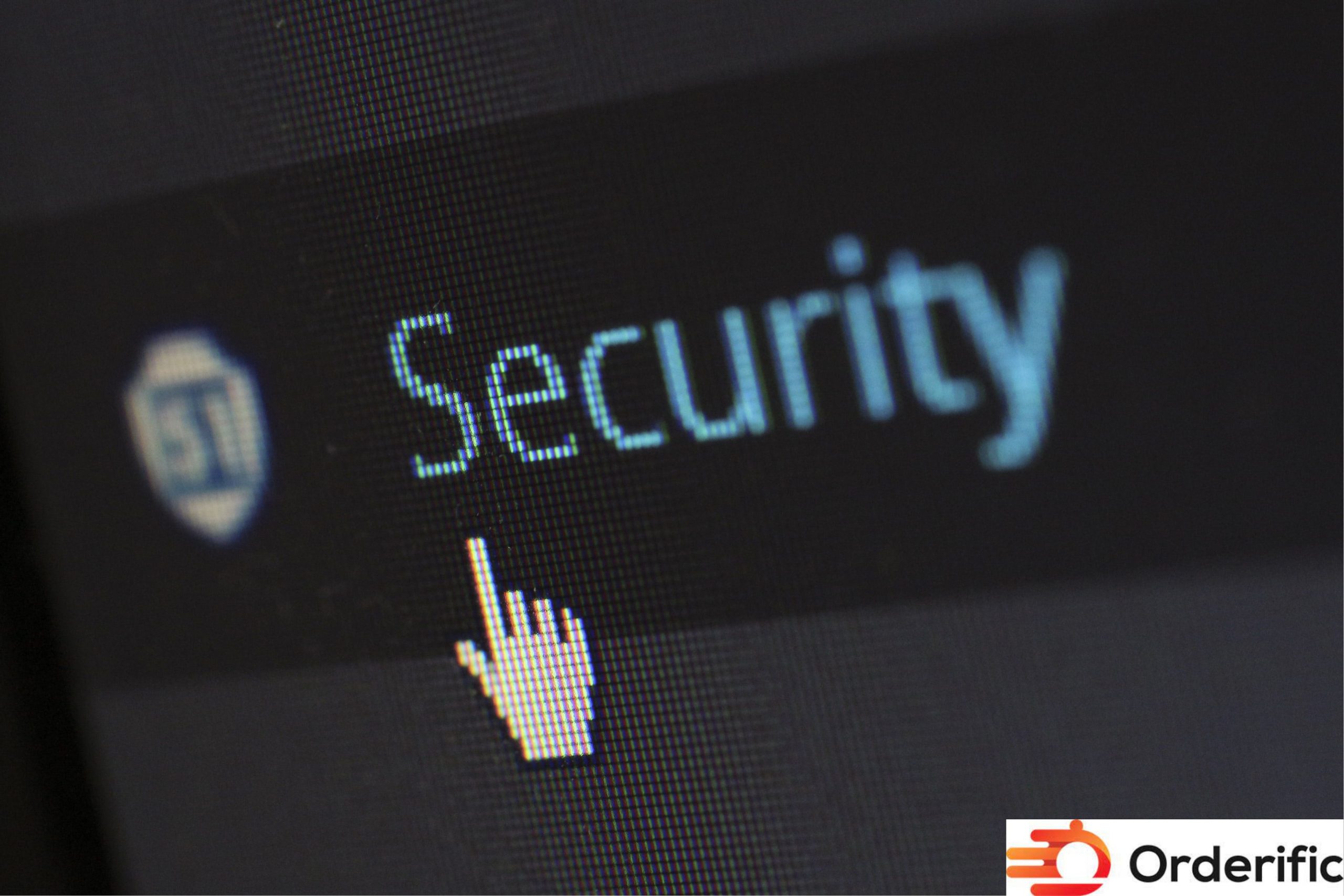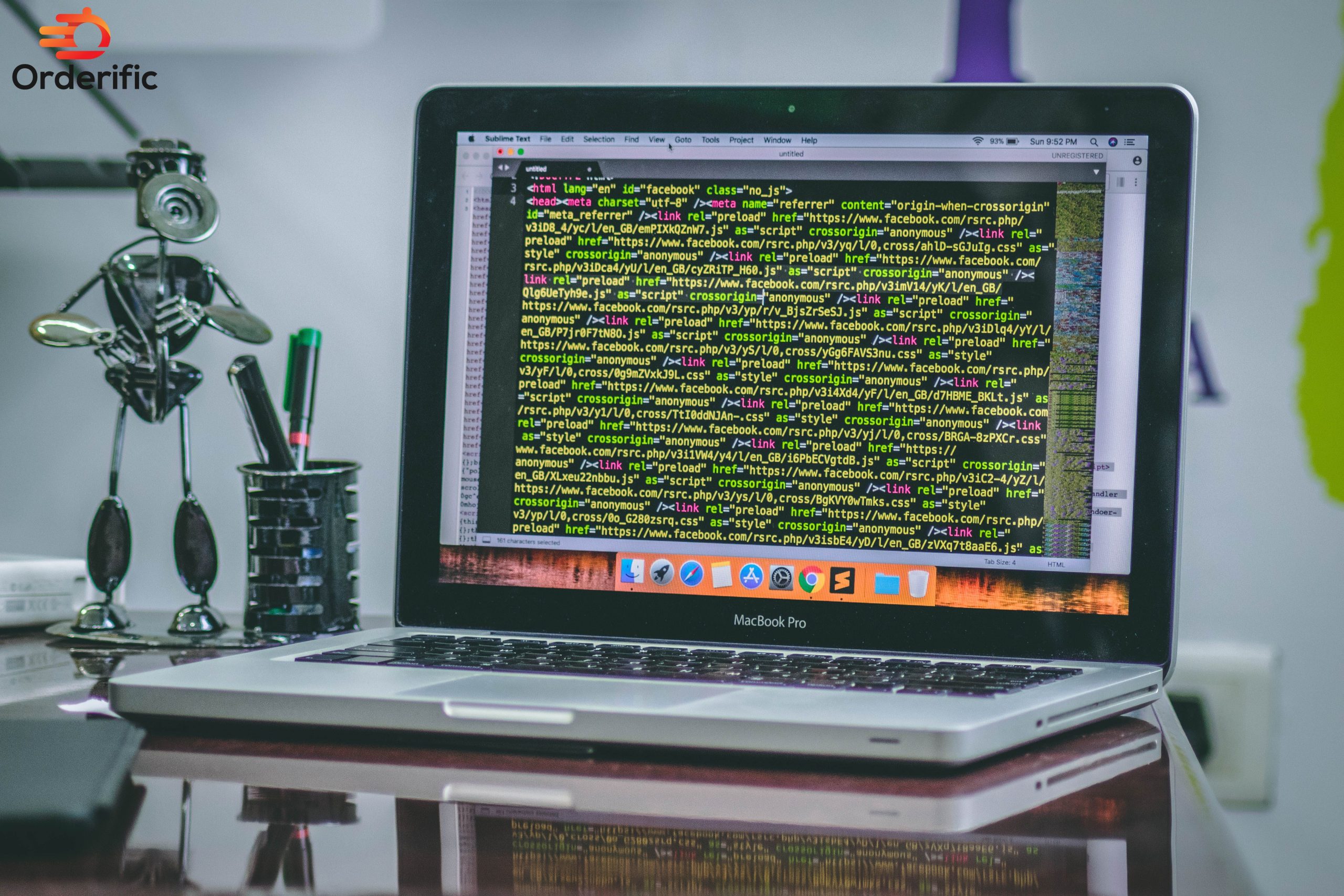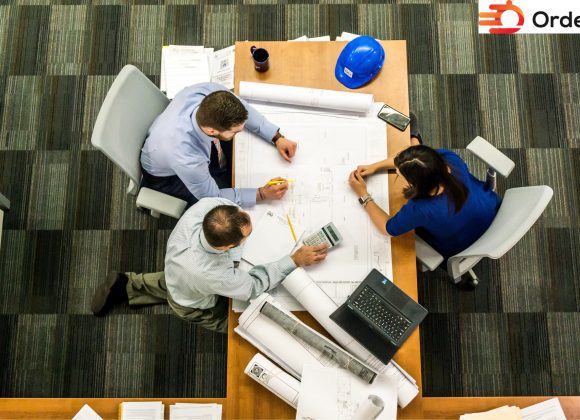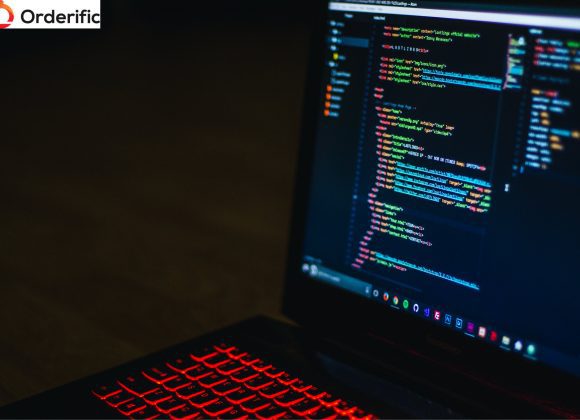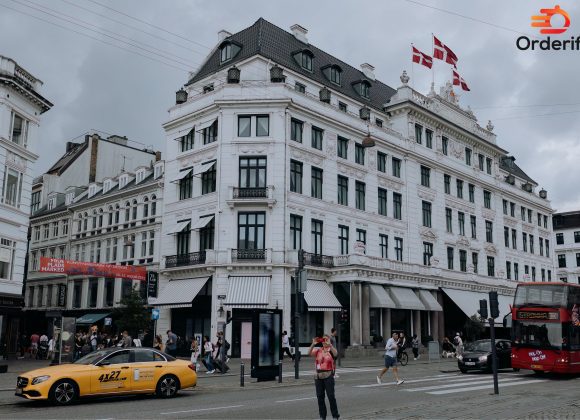Introduction
Embark on a fascinating journey through the history of hotel software, tracing its roots from basic property management systems to complex platforms managing every aspect of the hospitality industry. Witness the metamorphosis of revenue management, where paper ledgers have been replaced by sophisticated hotel PMS technology, revolutionizing hotel operations. These advancements have immensely enhanced the guest experience in hotels worldwide, from the small-town Holiday Inn to the bustling Conrad Hilton in New York City. In the modern era, open APIs have paved the way for seamless integration and communication among hoteliers, hotel staff, and guests. Explore how hotel technology has transformed the seasons of hotel management, with a particular focus on the impact of Oracle Hospitality’s revenue management system. Join us as we delve into the captivating world of hotel software systems.
What’s The Point Of Hotel Software Development?
Streamlining Operations
Streamlining operations, the cornerstone of effective hotel management, and the history of hotel software have been revolutionized by the evolution of hotel software. Property Management Systems (PMS) have transitioned from simplistic clutter to comprehensive platforms, harmonizing all aspects of the hotel industry. Whether it’s a Holiday Inn in a small town or the bustling Conrad Hilton in New York City, these systems have seamlessly integrated hotel operations, enhancing the guest experience significantly. Revenue management, once confined to manual paper ledgers, has been transformed by the sophisticated technology of hotel PMS, bringing about a revolution in the hospitality industry. Open APIs have further facilitated communication among hoteliers, hotel staff, and guests, leading to a more personalized and interactive relationship. Tools like Oracle Hospitality’s revenue management system have proven instrumental in this change, ushering in a new era of efficiency and convenience.
Improving Maintenance
The advent of the Property Management System (PMS) along with advancements in the hotel software, have led to significant improvements in the maintenance and management of hotel properties, notably landmarks such as the Conrad Hilton in New York. The seamless integration of hotel operations, made possible by open APIs, has enabled hotel staff to more efficiently manage their day-to-day tasks, leading to an enhanced guest experience. The hospitality industry, once reliant on manual processes, has been revolutionized by hotel PMS technology, with tools like Oracle Hospitality’s revenue management system being instrumental in this transformation. In this new era, history of hotel software hoteliers can effectively manage revenue, leading to a more financially stable hotel industry. Moreover, this PMS technology has improved the guest experience, a key facet of the hospitality sector, by personalizing and making interactive, the relationship between the hotel and the guest.
Managing Revenue Streams
One of the most transformative aspects of hotel software evolution has been the approach to managing revenue streams. From the early days of ledger books and paper-based systems, the hospitality industry has evolved to leverage sophisticated property management systems like Oracle Hospitality’s revenue management system in the history of hotel software. Such software provides crucial data-driven insights, allowing hoteliers to optimize pricing strategies and thereby maximize revenue. Furthermore, the incorporation of open APIs has facilitated the seamless integration of various revenue streams, enabling a holistic view of a hotel’s financial performance. This has certainly revolutionized the financial stability of the industry, providing hoteliers comprehensive understanding of their revenue management.
Improving Data Collection
A significant breakthrough in the evolution of hotel software systems has been the enhancement of data collection methods. Property Management Systems, like Oracle Hospitality, have not only streamlined operations, maximized revenue, and improved maintenance but also revolutionized data collection in the hospitality industry. Previously, data collection was a tedious and time-consuming process with room for errors. Now, with the advent of advanced hotel software, data is collected in real-time, with higher accuracy and less effort. This includes guest preferences, room occupancy rates, seasonal trends, and other key metrics. This data, when analyzed, offers valuable insights that can be leveraged to tailor guest experiences, develop effective marketing strategies, and make informed business decisions. In essence, improved data collection has led to smarter hotels.
Delivering Personalized Services
Delivering personalized services has been significantly enhanced by the advancement of hotel software systems. An evolved Property Management System like Oracle Hospitality’s revenue management system enables hotels to store and analyze vast amounts of guest data, including preferences and behavioral patterns. This data-driven approach enables hotels to provide highly personalized services, improving the guests’ experience from booking to post-stay. Whether it’s a personalized greeting upon arrival, a favorite drink waiting in the room, or a tailored activity recommendation, these personal touches create an unforgettable stay for guests. Open APIs further facilitate this personalization, allowing seamless communication and integration of guest preferences across various platforms.
Safeguarding Customer Data
In the era of digital transformation, safeguarding customer data has become a paramount concern for the hospitality industry. Advances in hotel software systems, especially Property Management Systems like Oracle Hospitality, have significantly boosted data security measures. Data encryption, secure user authentication, privacy settings, and regular system audits are just a few of the features now standard in hotel software to protect sensitive customer information. Open APIs also play a crucial role in ensuring secure data transmission between various systems. These developments not only comply with global data protection regulations but also enhance the trust and confidence guests have in the hotel’s ability to safeguard their personal information in the history of hotel software.
Simplifying Digital Marketing
The progression of hotel software systems has vastly simplified digital marketing for the hospitality industry. Advanced Property Management Systems (PMS) like Oracle Hospitality have made it easier to track guest preferences and behavior, which are invaluable for targeted marketing campaigns in the history of hotel software. With the aid of open APIs, hotels can now integrate guest data from various platforms, enabling the creation of personalized promotional content. This data-driven approach has also improved the analysis of campaign performance, providing key insights for future strategies.
Improving Staff Communication
The advent of advanced hotel software systems has considerably enhanced staff communication within the hospitality industry. Property Management Systems, such as Oracle Hospitality’s revenue management system, have introduced comprehensive dashboards and real-time updates, enabling seamless communication and alignment among the hotel staff. Tasks are tracked, updates are shared instantly, and issues are addressed promptly, leading to more efficient operations and improved guest services in the history of hotel software. The incorporation of open APIs has also allowed for the integration of various communication platforms, further streamlining the coordination process in the history of hotel software. As a result, the hotel staff can work as a unified team, significantly enhancing the guest experience.
Opening New Growth Opportunities
The evolution of hotel software systems has opened up new growth opportunities for the hospitality industry. Through sophisticated Property Management Systems like Oracle Hospitality, hotels can now leverage data-driven insights to identify emerging trends and unexplored markets in the history of hotel software. Detailed guest profiles and behavioral patterns can reveal potential services or products that can be introduced to enhance the guest experience and drive additional revenue. Open APIs further enable the integration of different platforms, providing a more holistic view of the hotel’s performance and potential growth areas. This has empowered hoteliers to make strategic decisions and explore innovative growth avenues. Furthermore, the automation of routine tasks frees up staff resources, allowing them to focus on strategic initiatives for business expansion.
Enhancing Customer Experience

The enhancement of customer experience has been a central focus in the evolution of hotel software systems. Advanced Property Management Systems, notably Oracle Hospitality’s revenue management system, have ushered in a new era of guest interaction in the history of hotel software. By analyzing comprehensive data on guest preferences and behaviors, hotels can now offer a highly personalized and interactive experience. This data-driven approach, facilitated by open APIs, allows for real-time updates and communication, ensuring that the guest’s needs are promptly met. Whether it’s a preferred room temperature or a favorite dish, every detail can be tailored to the guest’s liking, ensuring a memorable stay. Furthermore, the seamless integration of different platforms has given guests greater control over their stay, from booking to checkout, enhancing their engagement with the hotel.
Basic Modules And Key Features That A Hotel Management System Development Should Have
Reservation
A robust hotel management system must incorporate a comprehensive reservation module. This feature streamlines the booking process, making it straightforward and efficient for both guests and hotel staff. Guests can check room availability, book accommodations, and manage their reservations with ease. From the hotel’s perspective, a reservation system effectively manages room inventory, reducing the possibility of overbooking and ensuring optimal occupancy. The system also tracks reservation data, providing valuable insights into peak seasons, trends, and guest preferences. Incorporating APIs allows for seamless integration with third-party platforms, extending the hotel’s reach to a larger audience.
Front-Desk Operations
Front-desk operations form the heart of a hotel’s daily operations, and thus, an efficient property management system must include a user-friendly module for this. This feature should streamline tasks such as guest check-ins and check-outs, room assignment, billing, and handling guest requests. Real-time updates on room status are crucial, enabling the efficient allocation and turnover of rooms. The system should also support the seamless exchange of information between different departments, ensuring that guest requests and complaints are promptly addressed. Additionally, the front-desk module should enable the collection and storage of guest data, which can be utilized to enhance personalization and improve the guest experience. The integration of APIs can further enhance data exchange capabilities, facilitating seamless communication with third-party platforms such as travel agencies and online booking sites.
Housekeeping
A comprehensive hotel management system should have a dedicated housekeeping module. This feature ensures optimal coordination of housekeeping tasks, improving efficiency and guest satisfaction. Providing real-time updates on room status, allows housekeeping staff to prioritize their tasks and manage their time effectively. Furthermore, it enables the front desk to keep track of room availability, ensuring seamless room assignments and reducing wait times for guests. A good housekeeping module also includes an inventory management feature for tracking and replenishing housekeeping supplies. Integrated APIs allow for smooth communication between different departments, ensuring all guest requests are promptly addressed. In essence, a housekeeping module increases operational efficiency, enhances guest satisfaction, and contributes to a well-maintained property.
Channel Management
The Channel Management module is a pivotal feature of a holistic hotel management system. It facilitates the distribution of hotel rooms across various online booking channels, such as OTAs, GDSs, and direct hotel websites. This broadens the hotel’s reach, attracting a diverse range of guests and driving occupancy rates. In real time, the system updates room availability and rates across all channels, thereby minimizing overbookings and maximizing revenue. By analyzing data from these channels, hotels can gain insights into market trends, consumer behavior, and channel performance, informing their revenue management strategies. Integrated APIs enable seamless data exchange between the hotel management system and third-party platforms, ensuring that all channels have the most current information.
Revenue Management
A crucial element of an effective hotel management system is the revenue management module. This feature employs data-driven strategies to predict consumer behavior, optimize product availability and price, and maximize revenue growth. Utilizing historical data, booking patterns, and market demand, this module provides strategic pricing suggestions to increase profitability. Furthermore, integrated forecasting tools enable hotels to anticipate demand during different periods, thereby adjusting their pricing and promotional strategies accordingly. Thanks to advances in hotel software systems, in particular, Property Management Systems such as Oracle Hospitality, revenue management has become a more precise and efficient process. By integrating APIs, valuable data can be shared across multiple platforms, ensuring an informed, cohesive approach to revenue management across all operations. Ultimately, the revenue management module is a powerful tool in the hospitality industry, driving growth, enhancing profitability, and ensuring competitiveness in an ever-evolving market landscape.
CRM And Customer Data Management
The CRM and Customer Data Management module plays a critical role in a comprehensive hotel management system. It centralizes guest data, providing a complete profile of each guest that includes preferences, past interactions, and booking history. This enables the hotel to deliver highly personalized services, enhancing guest satisfaction and loyalty. Moreover, this module supports targeted marketing campaigns by identifying patterns in guest behavior and preferences. Additionally, CRM tools aid in managing guest feedback and handling complaints promptly and professionally, further improving guest relations. Through integrations enabled by APIs, the CRM module can sync with third-party platforms, ensuring that all guest data is current across various touchpoints.
Reports And Analytics
The Reports and Analytics module is a key component in a comprehensive hotel management system. This feature provides critical insights into various aspects of the hotel’s operations, from occupancy rates to revenue trends. With real-time data and intuitive dashboards, hoteliers can monitor their performance, identify areas of improvement, and make informed strategic decisions. These analytics also aid in forecasting trends and predicting guest behavior, essential for effective revenue management. Moreover, through the integration of APIs, data from third-party platforms can be consolidated, offering a holistic view of the hotel’s operation. The value of the Reports and Analytics module lies in its ability to provide actionable insights, driving operational efficiency, and strategic growth in the hospitality industry.
Back-Office Management
Back-office management is an essential module in a comprehensive hotel management system. It deals primarily with functions that do not have direct interaction with customers but are crucial for smooth hotel operations. These include finance management, inventory control, and human resources management. Effective back-office management ensures that all finances are tracked accurately, inventory levels are properly maintained, and staff schedules are organized in a way that meets the hotel’s needs. Advanced Property Management Systems, such as Oracle Hospitality, have greatly simplified back-office procedures, reducing manual work and potential errors. The integration of APIs further enhances operational efficiency by allowing data from different departments to be consolidated and analyzed in real time. This leads to better decision-making, improved resource allocation, and a more streamlined and efficient operation.
Point-Of-Sale Services
The Point-of-Sale (POS) services module is another crucial component in a comprehensive hotel management system. It manages the operations of various revenue-generating outlets within the hotel, such as restaurants, bars, spas, and gift shops. This module tracks sales, manages inventory, and handles billing, ensuring an efficient and seamless transaction process for both guests and staff. By integrating with the property management system, the POS module enables guests to charge purchases to their rooms, enhancing convenience and the overall guest experience. Additionally, sales data from this module provides valuable insights for revenue management and strategic planning.
With the evolution of hotel software systems, in particular, sophisticated Property Management Systems like Oracle Hospitality, POS operations have become more streamlined and efficient. APIs further enhance the functionality, enabling real-time updates and data exchange with other systems. In essence, the POS services module is vital in managing the diverse revenue streams in the hospitality industry, contributing significantly to a hotel’s profitability and guest satisfaction.
Hotel Software Development Market Trends That You Should Remember
Trend 1: Dominate With A Mobile App
Mobile applications are steadily gaining ground in the hospitality industry, reshaping the way hotels interact with and service their guests. In addition to facilitating efficient booking and check-in processes, these apps can significantly enhance the guest experience by offering personalized services. Guests can use the app to customize their stay, request services, and provide feedback, all at their fingertips. The integration of mobile apps with property management systems allows for seamless communication and data exchange, ensuring that guest preferences and requests are promptly addressed. Furthermore, mobile apps provide hotels with a powerful tool for targeted marketing, using push notifications to promote special offers and services. In essence, the trend towards mobile app dominance in hotel software development underscores the industry’s shift towards digitalization and customer-centric services.
Trend 2: Application Program Interfaces
Application Program Interfaces (APIs) have emerged as a leading trend in hotel software development, revolutionizing the way data is exchanged and processed in the hospitality industry. APIs facilitate seamless communication between diverse software systems, enhancing operational efficiency and data consistency. They are instrumental in integrating various modules of a property management system, such as reservation, front-desk operations, housekeeping, and revenue management, enabling real-time updates across all platforms. Further, APIs allow the property management system to sync with third-party platforms, extending the hotel’s reach and ensuring that all guest data is current across various touchpoints. In essence, the rise of APIs signifies a move towards a more integrated, data-driven approach in hotel software systems, setting the stage for advanced technologies and innovations in the hospitality industry.
Trend 3: Involving Augmented Reality Tech
Augmented Reality (AR) technology is increasingly making its mark in the hotel industry, offering a new dimension to the guest experience. By overlaying digital content onto the physical world, AR allows guests to interact with their environment in innovative ways. For instance, guests can use AR to tour hotel facilities, explore local attractions, or even preview their rooms before booking. Furthermore, AR can aid in staff training, providing a realistic and immersive environment for learning new skills. The integration of AR with property management systems provides a unique opportunity for personalization and engagement, setting the hotel apart in a competitive market. Ultimately, the advent of AR in hotel software development signifies a leap towards a more immersive, interactive, and personalized guest experience in the hospitality industry.
Trend 4: Applying Blockchain Technology
Blockchain technology is making significant strides in the hotel industry, transforming various aspects such as bookings, payments, and loyalty programs. This decentralized and transparent technology eliminates intermediaries, enabling direct bookings and secure transactions. It assures guests of their data privacy, as the information stored in a blockchain is highly secure and cannot be altered. Moreover, blockchain can provide a universal loyalty program, where points earned from one hotel can be redeemed at another, enhancing guest loyalty. Integrating blockchain with property management systems enhances data security, streamlines operations, and improves guest satisfaction. Essentially, the application of Blockchain technology in hotel software development signals a shift towards higher transparency, enhanced security, and improved operational efficiency in the hospitality industry.
Trend 5: Direct Booking Options
Direct booking options are becoming increasingly important in the hospitality industry. These options allow guests to securely book their stay directly via the hotel’s website or mobile app, bypassing third-party booking platforms. This not only ensures that hotels can avoid the commission fees that these platforms often charge but also allows them to forge a direct relationship with their guests. Guests benefit from the opportunity to access special rates, room preferences, and personalized services that may not be available through other channels. The integration of direct booking options within property management systems has streamlined the reservation process, enhancing the user experience, and increasing conversion rates. Ultimately, the rise in direct booking options in hotel software systems is a testament to the industry’s commitment to enhancing customer satisfaction and fostering lasting guest relationships.
Trend 6: Voice Assistants
Voice assistants are an emerging trend in the hospitality industry. They are digital tools that use voice recognition, speech synthesis, and natural language processing to provide services and tasks for users. These AI-driven assistants can automate a variety of tasks in a hotel, such as performing check-ins and check-outs, controlling room settings, offering information on hotel amenities, and providing local recommendations, all through simple voice commands. They can significantly enhance guest experience by offering personalized, on-demand services round the clock. Moreover, they can streamline hotel operations and free up staff to focus on other important tasks. When integrated with property management systems, voice assistants can access real-time data, ensuring that the services they provide are accurate and up-to-date. Ultimately, the integration of voice assistants in hotel software systems highlights the industry’s move towards automation, personalization, and a heightened guest experience.
Trend 7: Personalized Experience
The increasing emphasis on offering a personalized experience is a significant trend in the hospitality industry. Leveraging data from property management systems, hotels can tailor services to match individual guest preferences, thereby elevating the guest experience. Be it customizing room amenities, providing personalized dining options, or offering curated local experiences, personalization is at the heart of modern hotel guest service. Furthermore, data-driven personalization can also assist in targeted marketing, allowing hotels to deliver relevant promotions and offers to guests. This approach not only boosts guest satisfaction but also encourages loyalty and repeat business in the history of hotel software. In essence, the trend toward delivering personalized experiences underscores the hospitality industry’s commitment to placing guests at the center of its service model.
Trend 8: AI-Powered Solutions
Artificial Intelligence (AI) is becoming a defining trend in the evolution of hotel software, revolutionizing the hospitality industry with its advanced capabilities. AI-driven tools provide a myriad of solutions ranging from chatbots for round-the-clock customer service to predictive analytics for effective revenue management in the history of hotel software. These solutions, integrated with the property management system, enable real-time data exchange, ensuring an efficient and personalized guest experience. Furthermore, AI-powered systems streamline hotel operations by automating repetitive tasks, freeing up staff for more important tasks. For instance, AI algorithms can analyze booking patterns and optimize room rates, contributing significantly to efficient revenue management. Essentially, the rise of AI-powered solutions in hotel software development denotes the hospitality industry’s leap towards enhanced automation, data-driven decision-making, and improved guest satisfaction.
Trend 9: Usage Of Drones For Delivery
The deployment of drones for delivery is an emerging trend in the hospitality industry that’s transforming guest service. Drones, integrated with hotel software systems, can provide swift and efficient delivery of amenities, like fresh towels or room service orders, directly to the guest’s room. This not only adds an element of novelty to the guest experience but also streamlines hotel operations by automating deliveries and freeing up staff for more complex tasks. Moreover, drones can also be used for surveillance and maintenance purposes, assisting in the upkeep of hotel facilities in the history of hotel software. Importantly, the data captured by drones can be fed into the property management system, aiding in operations management and service optimization.
What Are The Potential Challenges Of Hotel Software Development?
Integration And Communication Issues
The integration of diverse systems within hotel software can sometimes pose significant challenges, primarily due to communication issues between different software modules. Each module of a property management system, such as reservation, housekeeping, or revenue management, has its own functionalities and data formats. When these diverse modules fail to communicate effectively, it can result in data inconsistencies, operational inefficiencies, and service delays. For instance, if the reservation module is not properly synced with the housekeeping module, it could lead to confusion regarding room availability, negatively affecting the guest experience. Therefore, seamless integration and effective communication between different modules are crucial for the smooth operation of hotel software systems. In essence, overcoming integration and communication issues is a major challenge in hotel software development.
Staff Recruitment And Training
The implementation and management of hotel software systems require a skilled workforce. However, hiring personnel with the requisite knowledge and technical skills can be a considerable challenge. Even after recruitment, the need for continuous training arises due to the constant evolution of software technologies. Training staff to proficiently use property management systems, understand the data, and apply it in daily operations, is not only time-consuming but also expensive. Moreover, the resistance to change and adapt to new technologies can further complicate the training process. Thus, staff recruitment and training present significant challenges in the development and operation of hotel software systems. It’s crucial to invest in comprehensive training programs and foster a culture of learning and adaptability to overcome these hurdles and ensure the effective utilization of hotel software systems.
Dynamically Changing Marketing Environment
The marketing environment of the hospitality industry is ever-evolving, making it a challenge to keep hotel software systems up-to-date. Changes in market trends, customer behavior, and competitive landscape necessitate continuous updates and enhancements to ensure the software remains relevant and effective. From incorporating new booking options to integrating innovative technologies like AI, maintaining pace with the dynamic market trends is crucial. Consequently, hotels need to adopt a proactive approach and invest in regular software updates and adaptations to effectively navigate this complex, changing marketing environment.
Operational Challenges
Operationally, implementing advanced hotel software systems can be quite challenging. Factors like high initial setup costs, system compatibility issues, and time required for full implementation can be significant hurdles. Additionally, ensuring continuous system uptime, managing technical glitches, and safeguarding against cyber threats are critical operational concerns. Therefore, strategic planning, proper resource allocation, and proactive problem-solving are crucial for overcoming these operational challenges in the implementation and management of hotel software systems.
Customer Behaviors
Understanding and adapting to changing customer behaviors is a critical challenge in hotel software development. With growing digital savviness, customers’ expectations for personalized, efficient, and tech-enabled services are continually increasing. This necessitates hotels to regularly update their software systems to meet these evolving demands. Failure to do so can result in reduced guest satisfaction and loyalty. Thus, staying attuned to customer behaviors and integrating their preferences into the hotel software is essential in the dynamic hospitality industry.
Hotel Software Development Explained
1. Analyze The Market And Industry Trends
The first step in hotel software development involves conducting a thorough market analysis and staying abreast of industry trends. This includes understanding changing customer behaviors, competitive landscape, technological advancements, and regulatory changes. With this information, developers can design software that addresses specific industry needs, aligns with current trends, and offers a competitive edge. This strategic approach ensures that the software remains relevant, effective, and beneficial to both hotels and their guests.
2. Decide On A Tech Stack And Module Architecture
Choosing the right technology stack and designing the module architecture are critical steps in hotel software development. The technology stack should be robust, scalable, and aligned with the specific requirements of the hospitality industry. Simultaneously, the module architecture must be designed in a way that ensures seamless integration and effective communication between different system modules. These steps are vital to ensure the functionality, reliability, and efficiency of the hotel software system.
3. Mind UI/UX Design
A crucial aspect of hotel software development is the design of an intuitive User Interface (UI) and a compelling User Experience (UX). This involves creating a visually appealing and easy-to-navigate interface that caters to the needs of both hotel staff and guests. The UI/UX design should promote efficient task completion, seamless interaction, and overall satisfaction for the users. In essence, a user-centric UI/UX design is a pivotal factor in the success of hotel software systems.
4. Data Safety
Ensuring data safety is of paramount importance in hotel software development. As these systems handle sensitive customer information and crucial operational data, they must be fortified with advanced security measures. These may include encryption, secure access controls, and robust backup systems in the history of hotel software. Data safety not only safeguards against potential cyber threats but also instills confidence in the users, thereby enhancing the overall trustworthiness of the software.
5. Testing
Testing is a vital phase in hotel software development. It involves rigorous examination of the software to ensure its functionality, reliability, and user-friendliness. Testing can help identify potential glitches, system vulnerabilities, and areas of improvement. It ensures that the software not only meets the design requirements but also provides a seamless and secure user experience. This crucial step helps in refining the software before its final implementation, thereby ensuring its effectiveness and dependability in a real-world hospitality setting.
6. Hotel Software Development
Hotel software development is an intricate process involving a comprehensive understanding of hospitality requirements, seamless integration of various modules, and the use of advanced technologies. It involves creating a system that can effectively enhance guest experiences and streamline hotel operations in the history of hotel software. This process requires a strategic blend of innovative thinking, technical expertise, and a deep understanding of the dynamic hospitality industry. Essential aspects of this development process include rigorous testing, ensuring data safety, and a user-friendly interface for optimal usability.
7. Launch
After thorough testing and fine-tuning, the developed hotel software is finally ready for launch. This significant stage involves deploying the system in a real-world hospitality environment, thus commencing its actual operation. The launch marks the culmination of diligent development efforts and the beginning of the software’s contribution to enhancing hotel operations and guest experiences. It’s essential to ensure ongoing customer support and regular system updates post-launch to maintain the software’s relevance and effectiveness in a rapidly evolving hospitality industry.
8. Post-Launch Support And Maintenance
Post-launch support and maintenance are indispensable aspects of hotel software development. They involve continual monitoring of system performance, resolving technical issues, and implementing necessary updates to maintain its relevance in the ever-evolving hospitality industry. Proactive support ensures the system’s smooth operation, while regular maintenance aligns it with dynamic customer behaviors and market trends, thereby sustaining its effectiveness and efficiency in hotel operations in the history of hotel software.
Conclusion
In conclusion, the journey of hotel software development is a testament to the remarkable progress in the hospitality industry. Over the years, technological advances, such as property management systems and revenue management tools, have revolutionized this sector, enhancing both operational efficiency and guest experiences. Despite the challenges, such as integration issues, staff training, changing marketing environment, operational hurdles, and evolving customer behaviors, the industry’s resilience and commitment to innovation have remained steadfast. This progress is set to continue, with advancements in AI, drone technology, and robust data safety measures leading the way.
If you’re intrigued by the potential of hotel software and wish to experience its transformative power firsthand, we invite you to BOOK a demo with Orderific. Let us guide you through the dynamic world of hotel software and show you how it can uplift your hospitality business. Book your demo today!
FAQs
What was the first form of hotel software, and when was it introduced?
The first form of hotel software was the Property Management System (PMS), introduced in the late 1970s.
How did technology influence the development of early hotel management systems?
Technology provided the necessary tools for efficient management of hotel operations, streamlining tasks such as booking, check-in, and billing.
What were the limitations of early hotel software, and how have they been overcome?
Early hotel software faced limitations like rigid functionality, lack of integration, and user-unfriendliness, which were mitigated with advancements in technology and user-centric design.
When did hotel software start incorporating online booking capabilities?
Online booking capabilities were incorporated into hotel software in the mid-1990s.
What are some major advancements in hotel software in the 21st century?
Major advancements in 21st-century hotel software include the integration of AI, data analytics, mobile technology, and cloud-based systems.


